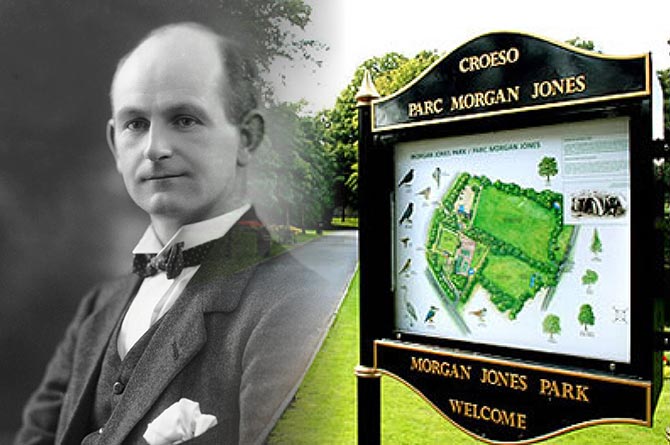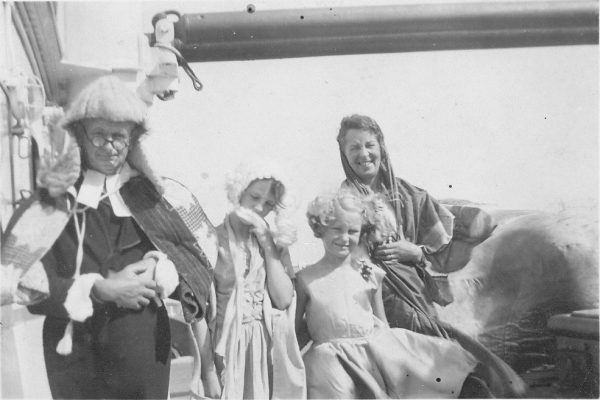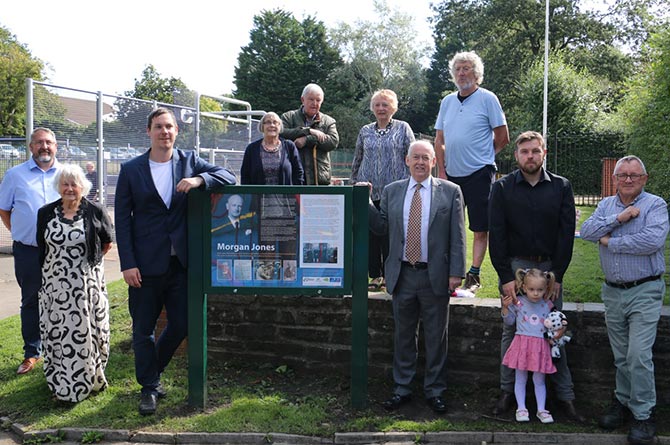Support quality, independent, local journalism…that matters
From just £1 a month you can help fund our work – and use our website without adverts. Become a member today

Morgan Jones is a name synonymous with Caerphilly. There’s a park named after him, as well as a council ward. But who was Morgan Jones, and why is he significant?
Jones was a former Member of Parliament for the Caerphilly constituency, and served the community he came from for 18 years.
Born in Gelligaer, he was raised in Bargoed and was chosen by the Labour Party to contest the 1921 Caerphilly by-election, which was held 100 years ago on August 24, 1921. Prior to this, he was a member of the local Gelligaer council and as Chairman of the Housing Committee oversaw the building of nearly 1,000 council houses.
The by-election was triggered by the death of Alfred Onions, who had been the Labour MP for Caerphilly since the constituency was created in 1918.
He won, seeing off competition from the Liberal Party, as well as the British Communist Party – which was contesting its first election in the UK and was buoyed by the Communist Revolution in Russia just four years earlier.
Jones also made history by becoming the first conscientious objector elected to Parliament – having previously been imprisoned for refusing to fight in the First World War.
While in Parliament, he served as a Junior Education Minister in the Labour governments of 1924 and 1929.
He was re-elected to Parliament six more times before his death in 1939, aged just 53.

His time in Westminster coincided with a tumultuous era in British history. With the First World War still fresh in the memory, the rise of fascism in Germany and the imminent threat posed by Adolf Hitler to the rest of Europe, war grew increasingly likely.
Caerphilly’s current MP Wayne David said the rise of Hitler gave Jones an “intellectual trauma”.
He said: “He saw the First World War as a war between ruling classes that shouldn’t have included ordinary people.
“But he realised the only way to defeat fascism was for countries to work together. His pacifism gave way to support for fighting against evil.
“He was a man of principle and pragmatism. He was not prepared to see the horrors of fascism go unchallenged.”
Mr David, who published a book about Jones in 2019, described him as “a man who always had strong principles” and said: “He was always someone who had his feet on the ground and put residents first.”
Morgan Jones, according to Mr David, was said to be deeply influenced by religious non-conformity. His mother, a Welsh Baptist, believed disagreements should never be resolved by force – the foundation of Jones’ profound pacifist beliefs.
Refusing to fight in the First World War led to his imprisonment in the notorious Wormwood Scrubs where he endured solitary confinement, abuse and a diet of bread and water. This, Wayne David has said, showed that Jones had strong principles and a “tremendous strength of character”. This all at a time when support for the war was strong.
Today, as opinions on almost every subject seem to polarise people, perhaps we can learn from Morgan Jones’ ability to reconcile strong beliefs with a more pragmatic approach.
Morgan Jones’ by-election marked in the park named after him
To mark the 100th anniversary of Jones’ election to Parliament, an information board was unveiled at Morgan Jones Park in Caerphilly town.

The board, which contains photos and a biography of Jones, was unveiled on Tuesday, August 24 by Mr David and Caerphilly County Borough Council’s Deputy Leader Jamie Pritchard, who is a councillor for the Morgan Jones ward.
Cllr Pritchard said: “Throughout his life, Morgan Jones worked hard for the people of the Rhymney Valley, and was always a proud Welshman.
“He deserves to be remembered by the people of Caerphilly and by everyone who uses this wonderful park which was named in his honour.
“Today is a poignant date to remember the life and contribution of Morgan Jones to his community and the socialist cause.”
Cllr Shayne Cook, who also represents the Morgan Jones ward, was in attendance at the unveiling, as were members of the Gelligaer Historical Society.
The information board was paid for by the council’s Cwm a Mynydd Rural Development Programme, which is funded by the European Agricultural Fund for Rural Development and the Welsh Government.
Support quality, independent, local journalism…that matters
From just £1 a month you can help fund our work – and use our website without adverts.
Become a member today
